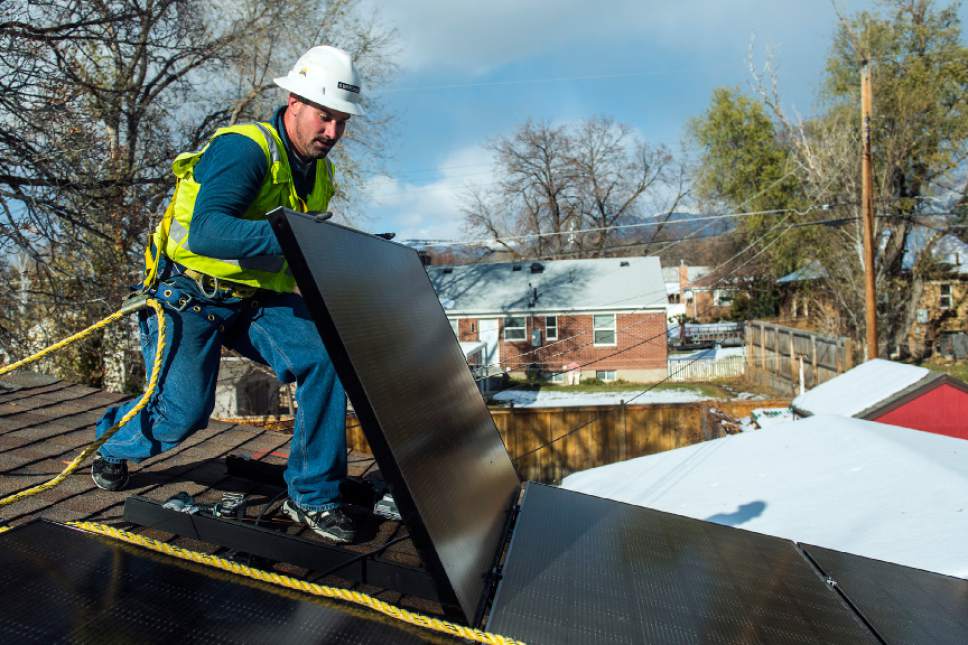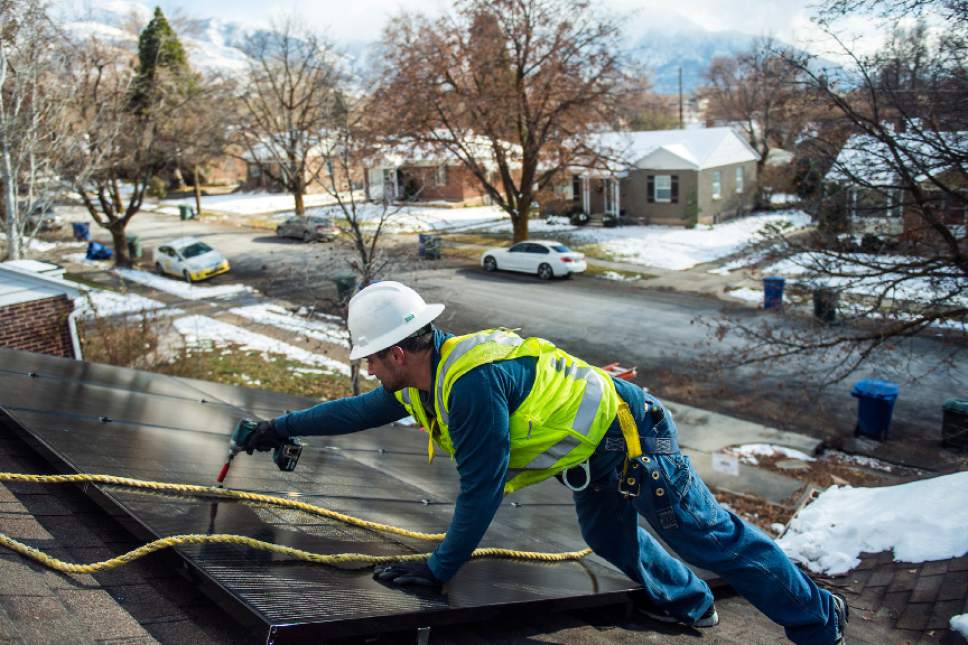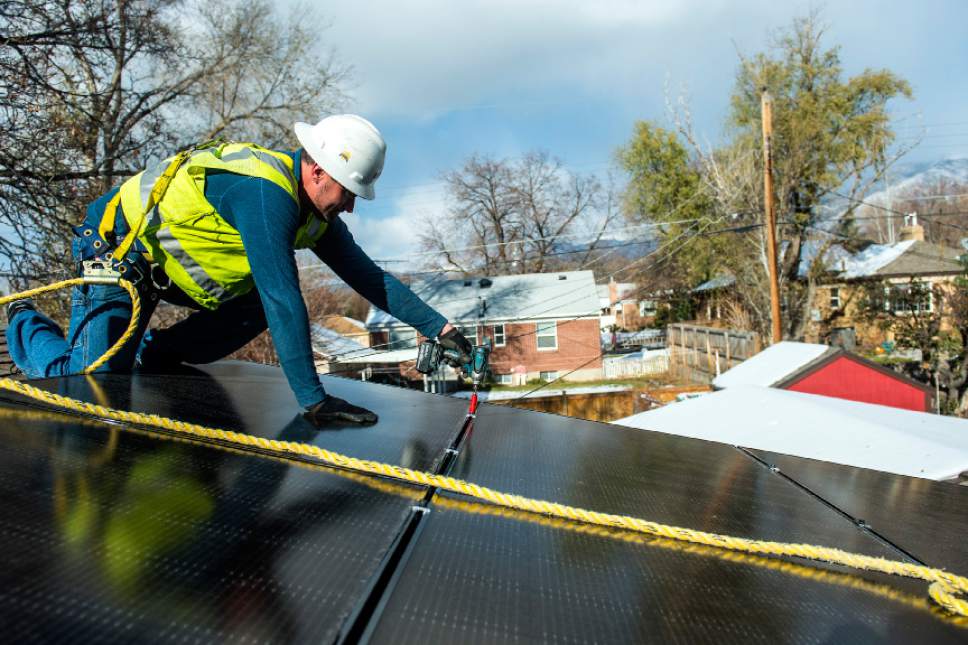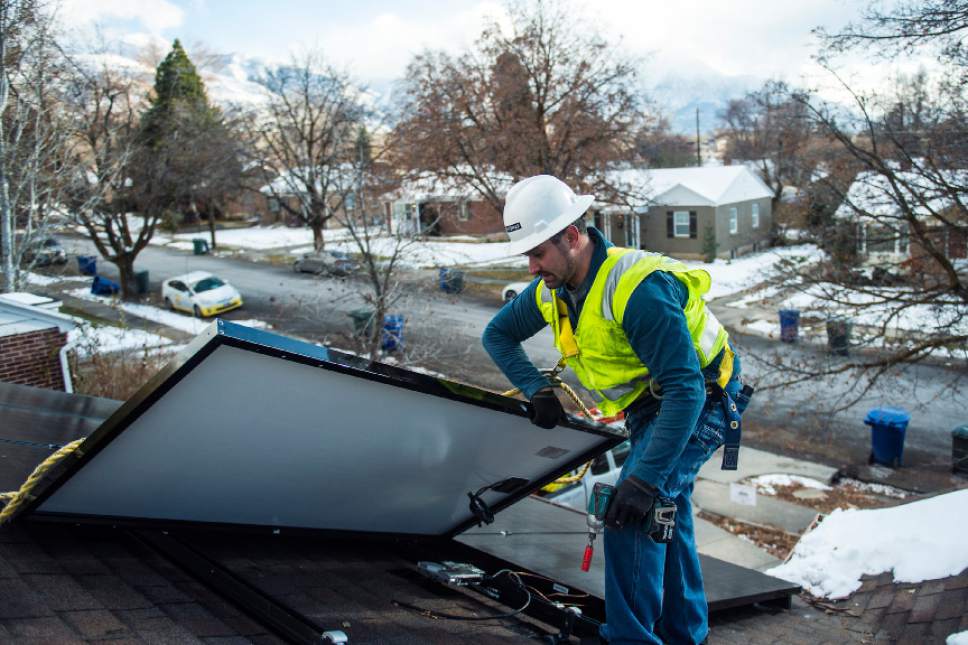This is an archived article that was published on sltrib.com in 2016, and information in the article may be outdated. It is provided only for personal research purposes and may not be reprinted.
Friday could be an expensive dividing line for Utah's future solar customers — the difference between locking down current low electrical rates, and being at the mercy of Rocky Mountain Power as it maneuvers to change how it charges its residential solar customers.
The possibility of higher costs appears to have spurred would-be customers to sign up for Rocky Mountain Power's net-metering program in droves during the past month.
The state Public Service Commission won't weigh the company's requested rate change until next year. But this week, it will decide the fate of the utility's proposed first step, which would lay the groundwork to grandfather existing residential solar customers into current rates and assign different rates to new customers.
Under the proposal, customers who submit net-metering applications after Dec. 9 would be assigned to a new, separate rate schedule for households with rooftop solar. They would initially pay prices identical to Rocky Mountain Power's current rates, but in the future their bills could change if the utility's main rate-change proposal is approved.
Rocky Mountain Power has said its recalibration is designed to ensure solar users pay their fair share to access the power grid. An average residential solar customer is billed about $55 a month under the current rate; the utility says its changes — which include a higher monthly service charge and a new monthly "demand charge" — would take that up to $74.
(To calculate how the proposal affects individual solar bills, visit local.sltrib.com/solar.)
Utah's solar industry opposes the utility's plans, and is hoping the commission will halt this first step. Solar advocates say that the possibility that Utahns who sign up for residential solar after Dec. 9 could one day face higher rates will put a damper on the now-booming industry.
Utility spokesman Paul Murphy says the company has received more than 2,000 residential solar applications in the month since it announced its proposals, after averaging 1,300 applications a month during the past six months.
Ryan Evans, president of the Utah Solar Energy Association, said some of those people may be opting — at the suggestion of the solar companies themselves — to submit net-metering applications to "get in line" before Friday.
If the commission doesn't weigh in by the close of business Friday — 30 days after Rocky Mountain Power filed the proposal — then the request to create a new rate schedule and assign customers to it will automatically take effect. Under state law, the commission doesn't have to weigh in on this filing since it doesn't propose to change the rates at which electricity is sold.
But the commission has the legal authority to modify the utility's request — changing the date at which it draws the line, for example — or to delay the decision or even reject it entirely.
For Auric Solar, the proposals seem to have piqued public interest in rooftop solar, or at least prompted widespread conversation.
But marketing director Bobby Gibson said the company has not encouraged customers to file net-metering applications before committing to purchase a solar installation. He said he doesn't know of any other solar companies that have, though he could understand the rationale that could lead to such advice.
"There is a lot of ambiguity in the community," he said.
The rate at which Auric is acquiring new customers is slightly down, he said. And, he said, employees are wondering whether they will soon be out of a job, even though recent sales have been steady.
Evans said he doubts the spike in applications reflects the actual number of pending solar installations.
"Applications are definitely up," he said, "but that doesn't necessarily mean all will go through."
Those customers may not plan to install a rooftop array in the coming months — in fact, Evans said, they might have yet to commit to a purchase.
Murphy said net-metering applicants have one year after their application's approval to install solar panels and complete the project. On average, he said, it takes one month to process and approve a net-metering application.
Evans said he feels hopeful that the commission will take action before Friday's deadline.
If it doesn't, he said, "every company I work with closely has said they won't feel comfortable selling [solar] on Monday."
Twitter: @EmaPen









